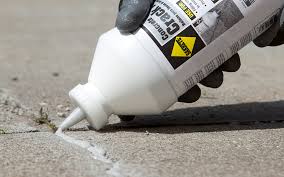Tips for Taking Care of Your Stucco Exterior
To keep your stucco exterior attractive for many years, you need to
provide it with routine maintenance. Like other building materials, it needs
periodic cleaning and inspection to retain its fresh appearance. Here are a few
tips you can do to ensure your walls are looking their best:
Wash the Walls
Stucco is a porous material, so it collects dirt and absorbs stains. It
must be cleaned seasonally to prevent grime, dust, and other substances from
building up in its gaps.
Wash it with a garden hose to dampen the wall and loosen dust. Use a
cleanser with a mild solution of trisodium phosphate and dissolve it in water.
Then, rinse off the soap using a garden hose, working from the top and
down.
Remove Its Molds
Stucco has a textured surface, which allows dirt to settle into its
crevices. To remove grime, mold, and other substances, use a soft brush or
sponge to apply bleach or anti-mold solution on the wall. Let it soak for 30
minutes before rinsing it. Then, check the area after a day. If there are still
affected spots, reapply the solution following the same procedure.
Repair Its Cracks
Unlike other exterior materials, stucco boasts rigidity. But, it also
causes it to crack, chip, and gouge over time. When this happens and you see
tiny gaps developing, take swift action.
Look for the best stucco mixes available. Once you have them on hand,
brush the damaged area to eliminate any chalk, dirt, or oil that'll hinder the
repair compounds from working properly. Then, smooth them onto the
wall.
If your stucco wall was recently painted, check for cracks, peeling,
and bubbling. Newly coated exteriors can be easily damaged, especially during
rainy days when there's too much moisture.
Inspect It Under Different Weather
Inspecting stucco in hot and cold weather will help you detect problems
it may have. So, every season, check the surface for cracks, address them even
if they seem small. They may appear wider during warm days.
Remove Efflorescence
The efflorescence looks like a white powdery residue that forms when a
small quantity of salt mixes with rain or snow. To remove this, apply a water-vinegar
mixture to the surface. Let it dry before rinsing it.




Comments
Post a Comment